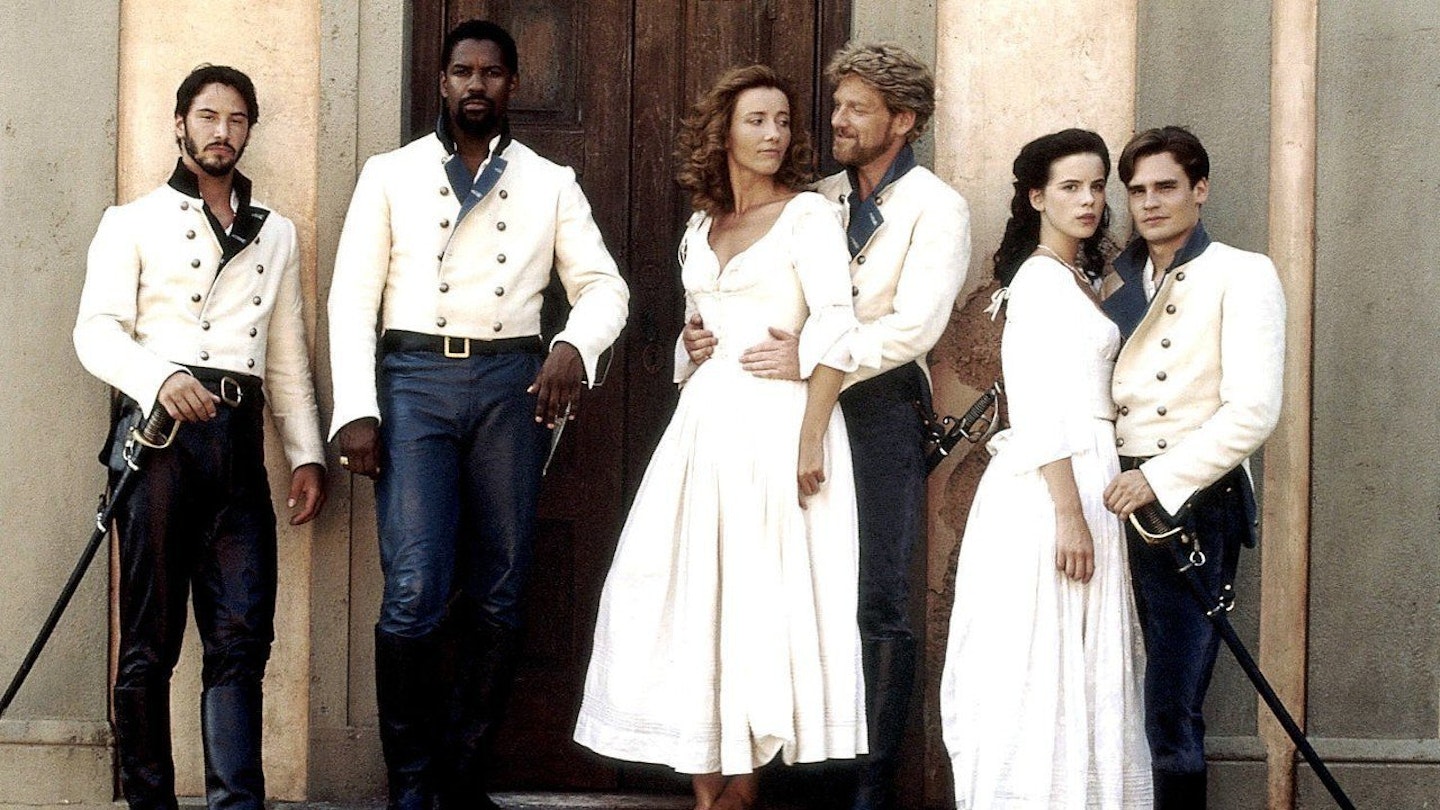It's like a cultural exchange: noted Bard-botherer Kenneth Branagh makes a comic-book movie, geek god Joss Whedon adapts Shakespeare’s sharpest romantic comedy — one Branagh has already tackled, to boot. But just as Ken showed a populist heart with Thor, Whedon’s whipcrack wit proves a perfect fit for this biting love story of romantic conspiracies.
Shot in crisp black-and-white in the director’s own home, this is small-scale, but intimate, not cheap. By casting regular collaborators familiar with the play and each other from Shakespeare readings at his home, Whedon ensures everyone seems comfortable with the language. They’re so breezy and zippy, in fact, that aside from the odd archaic turn of phrase, you could close your eyes and swear this was an episode of Buffy — albeit light on monsters.
Among the cast, Amy Acker’s a perfect Beatrice, smart and foolish in equal proportion and laying a touch of melancholy under her merry war with Benedick. There, Alexis Denisof is broader and more clownish, but takes such a gleeful relish in the text that it’s impossible to dislike him. As Leonato, Clark Gregg once again steals scenes without a word, while Reed Diamond should see his stock rise a few levels thanks to an impish performance as Don Pedro. Jillian Morgese and Fran Kranz’s shining Hero and Claudio, torn apart by the evil machinations of Sean Maher’s Don John, manage to make an impact despite Beatrice and Benedick’s sparkier story, keeping a noir core to offset all the lovey-dovey stuff.
It’s in balancing these competing elements and characters that this version really shines. While Branagh’s adaptation was ravishingly sun-soaked and drunk on its own loveliness (arguably luvviness), this one is steelier — even as it’s leavened with comic buffoonery from Nathan Fillion’s ridiculous Dogberry. By giving everyone a moment to shine, Whedon creates a Shakespearean Scooby gang of fully-rounded individuals and a fizzily fresh take on this story of love, lies and love-sparked-by-lies.





](http://thefilmstage.com/news/first-look-nathan-fillion-does-shakespeare-in-joss-whedons-much-ado-about-nothing?ar=16%3A9&fit=crop&crop=top&auto=format&w=1440&q=80)